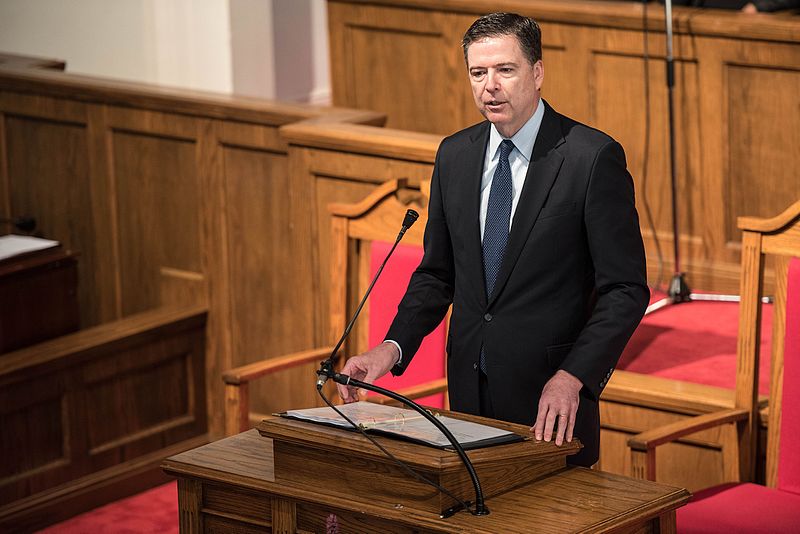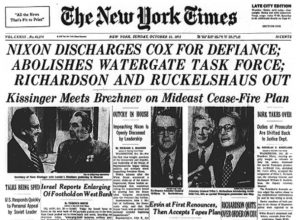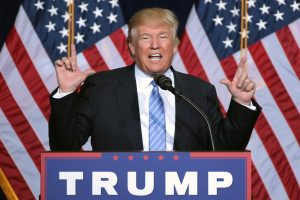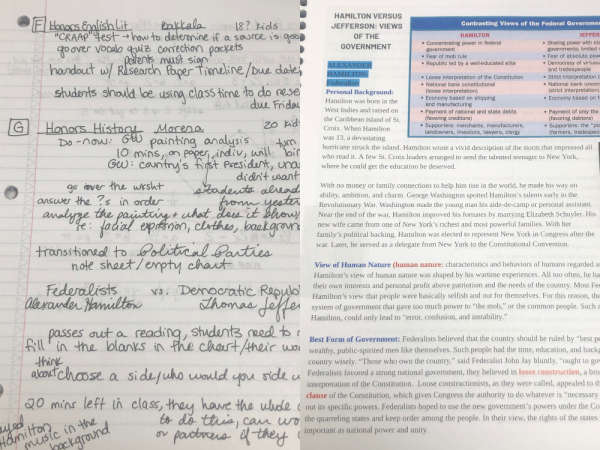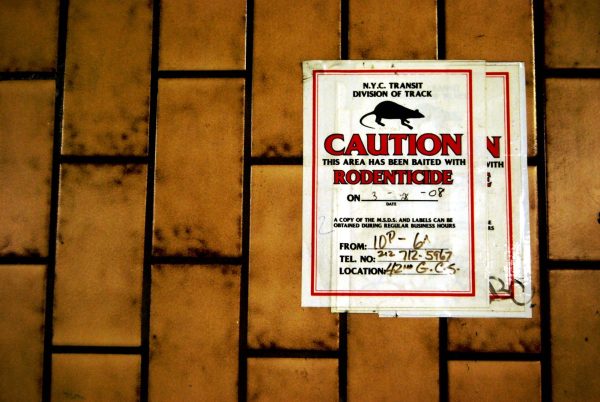Trump and Comey: Where will the journey end?
Is it nothing or is it another Watergate?
Wikimedia Commons/Creative Commons license
The firing of former FBI Director James Comey has ignited a political firestorm.
President Donald Trump made an executive decision on May 9 to fire FBI Director James Comey, a move that has led to considerable political fallout over the past two weeks.
Mr. Trump’s decision came on the same day that he received two letters, from Attorney General Jeff Sessions and Deputy Attorney General Rod Rosenstein, respectively, recommending that Mr. Comey be terminated. Mr. Trump’s staff initially said that the president merely acted on this advice, but the story has since changed significantly.
The initial reason given for this recommendation was Mr. Comey’s handling of the Hillary Clinton email/private server investigation last year. Mr. Rosenstein wrote in his letter that “the way the Director handled the conclusion of the email investigation was wrong.” It should be noted, however, that this directly contradicts the sentiments of Mr. Trump, who repeatedly praised Mr. Comey’s handling of the Clinton situation during the 2016 presidential campaign.
When the FBI announced in the final two weeks of the campaign that it was taking a deeper look into Mrs. Clinton’s emails, for example, Mr. Trump said during a campaign speech in Manchester, N.H., that he had “great respect for the fact that the FBI and the Department of Justice are now willing to have the courage to right the horrible mistake that they made.” This presumably was a reference to a decision not to bring any charges against Mrs. Clinton in the summer.
The following day, in Phoenix, Ariz., Mr. Trump directly referred to Mr. Comey, saying, “And I have to tell you, I respect the fact that Director Comey was able to come back after what he did. I respect that very much.”
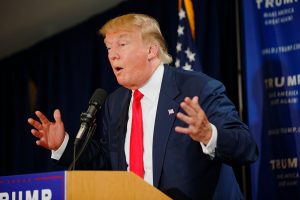
President Trump is facing intense questions about his motives for firing James Comey.
In his termination letter to Mr. Comey, the president wrote, “While I greatly appreciate you informing me, on three separate occasions, that I am not under investigation, I nevertheless concur with the judgment of the Department of Justice that you are not able to effectively lead the Bureau.”
No specific reason was given beyond this and many analysts concluded it was odd that Mr. Trump felt the need to include the statement that he was told three times that he was not under investigation in connection with the FBI probe into possible contact and collusion between Russia and Mr. Trump’s campaign staff.
Two days later, in an interview with NBC News anchor Lester Holt, Mr. Trump changed his story.
“I was going to fire [Mr. Comey] regardless of recommendation,” said Mr. Trump, who went on to suggest that the Russia investigation was directly related to the dismissal. “When I decided to [fire Mr. Comey], I said to myself, I said, You know, this Russia thing with Trump and Russia is a made up story.”
Some have charged that this could be construed as obstruction of justice. Mr. Trump did not help himself by telling Mr. Holt that Mr. Comey was a “grandstander” and a “showboat” and, a day after the firing, by reportedly telling Russian officials in the Oval Office that Mr. Comey was a “nut job.”
“I faced great pressure because of Russia. That’s taken off,” The New York Times reported Mr. Trump as saying.
That, in concert with reports that Mr. Comey had written contemporaneous notes claiming that Mr. Trump had asked if he could ease off his investigation of former National Security Adviser Michael Flynn (who resigned his post in February) and his ties to Russia, led to Mr. Rosenstein appointing former FBI Director Robert Mueller as special counsel in charge of investigating potential ties between the Russians and the Trump team.
It has led some, even within the Republican Party, to invoke the shadow of Watergate. Arizona Sen. John McCain said the scandal is growing to “Watergate size and scale,” although he walked back the statement to a certain degree last week.
Now the nation and the world watch and wait to see where Mr. Mueller’s investigation will lead over the weeks and months to come.
“[I]f the administration truly had objections to the way Director Comey handled the investigation, they would have had them the minute the president got into office,” Senate Minority Leader Chuck Schumer said the day after the firing. “But he didn’t fire Director Comey then. The question is: Why did it happen last night?”

Joe is a sophomore with a personality one would describe as “unique.” He is a passionate individual who always tries to find the fun in every situation...


